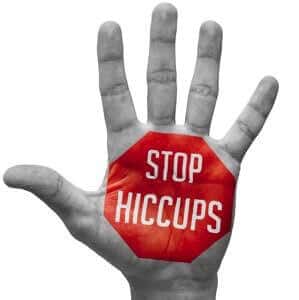
Everyone has had some experience with hiccups, but probably they didn’t last too long. Sometimes, however, hiccups persist for hours, days or even weeks. Unfortunately, researchers have not found treatments to reliably stop hiccups in such cases (Alimentary Pharmacology & Therapeutics, Nov. 2015). What do you do for long-lasting hiccups? One reader has an unusual remedy.
Strange Remedy to Stop Hiccups:
Q. In the past, when I would get the hiccups, they would last all day, off and on, no matter what I did. One day I was having a really persistent bout going on and thought, “I wonder what would happen if I took some Rolaids?”
I popped a few flavored Rolaids into my mouth, crunched them down, and—Shazam—within seconds the pesky, annoying hiccups were gone. It’s worked for me several times since and it’s a real relief.
How Do Hiccup Remedies Work?
A. We have been writing about ways to stop hiccups for decades. Most are based on personal experiences like yours, but occasionally we’ll spot something in the medical literature. The first one we ever found was in The New England Journal of Medicine, Dec. 23, 1971. Three doctors tested a spoonful of white sugar on 20 patients with persistent hiccups and reported that 19 got quick relief from their hiccups. The authors hypothesized that sugar works by stimulating the phrenic nerve in the palate. This in turn triggers the vagus nerve and apparently reverses the involuntary contraction of the diaphragm.
We suspect that your crunched-up Rolaids stop hiccups in a similar way. Strong flavors may also play a role. Scientists have found that transient receptor potential (TRP) channels influence nerves throughout the body. Menthol (mint flavor) activates TRPM8 (Current Neuropharmacology, March 2008). We don’t know if this leads to interruption of the vagus nerve misfiring that creates hiccups.
Citations
- Steger M et al, "Systemic review: The pathogenesis and pharmacological treatment of hiccups." Alimentary Pharmacology & Therapeutics, Nov. 2015. DOI: 10.1111/apt.13374
- Engleman EG et al, "Granulated sugar as treatment for hiccups in conscious patients." The New England Journal of Medicine, Dec. 23, 1971.
- Vriens J et al, "Herbal compounds and toxins modulating TRP dhannels." Current Neuropharmacology, March 2008. doi: 10.2174/157015908783769644

